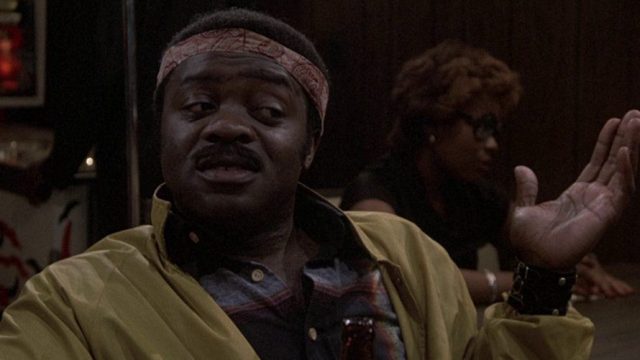Zach Vasquez in Crooked Marquee analyzes the talents of Yaphet Kotto through two of his death scenes:
Kotto—who passed away last month at the age of 82—is not as widely synonymous with onscreen death as the likes of Danny Trejo or Sean Bean, even though he memorably bought it in several of his best-known roles (Alien, Live and Let Die, the television series Homicide: Life on the Street). But his death scenes in two lesser-seen works from the 1970s—the hardboiled blaxploitation classic Truck Turner (1974) and the gritty union crime-drama Blue Collar (1979)—stand him as one of the all-time top film decedents. More than just memorable set-pieces, those two scenes also reveal just what it was that made Kotto such a brilliant actor and unforgettable screen presence.
Gizmodo‘s Dharna Noor points out the problem with Mike Rowe’s new Discovery+ show‘s sponsorship by the oil and natural gas industry:
It’s true that across the U.S., water heaters, stoves, and electricity that keeps your phone charged largely run on fossil fuels. Yet none of it has to. We have the technology to power each of those things with clean energy. Delaying that transition would lock in catastrophic climate damage. That’s what makes Rowe’s show and other fossil fuel PR campaigns like it so insidious.
After writing the definitive portrait of Clyde Bruckman, Matthew Dessem interviews another unsung giant of American art: The guy who yells “MORTAL KOMBAT!”
[The director] says, “Hey, come here, come here. I want to ask you a question.” And I’m thinking at that time, like, Oh, yeah, he’s taking an interest in me. He’s probably going to put me on camera. I’m going to get a little bit of face time here. And he says, “I want you to just yell that with all of your might, like you are summoning the darkest demons in your body.” And I did that take, and that’s the one I remember.
For Art in America, Zoe Samudzi looks at George W. Bush’s latest book of portraits and its attempt to paint over Bush’s political legacy:
One image strikes me as completely unlike the others. Rather than being swathed in supple, soft light, Medal of Honor awardee Florent Groberg stares blankly ahead like a robot: of Algerian descent, he has olive-toned skin painted in a sickly palette of grays. Bush seems to have used only black and white paint rather than his usual pastels, except when rendering this subject’s radiant gold medal. But Groberg’s narrative is written much like the others’, focusing on his military career and detailing his trajectory from the “ghetto” in Achères, France, to his heroic intervention: while serving in Afghanistan, he saved members of his team from a suicide bomber and was severely wounded. Groberg resembles a silvered humanoid trophy, a testament to the kind of reverence that the former president has for the exalted, yet still disposable, troops who valiantly protect American freedoms.
While reviewing a new biography of Philip Roth in Bookforum, Christian Lorentzen examines his larger influence in the world of “literary fiction” and its critical network:
The more readers (and critics) are content to conflate alter egos with authors, the more authors are tempted to idealize their fictional selves: confessional literature cedes the field to the autofiction of self-flattery. Characters in middlebrow melodramas are fine-tuned to avoid the ruffling of sensitivities. Elsewhere villains and victims are flattened so that the readers of contemporary gothic narratives can easily tell them apart. A pseudopolitical moralizing about these issues has crept into more and more of our criticism, and prizes are bestowed on maudlin therapeutic narratives of abuse and recovery. (See last year’s Booker winner Shuggie Bain.) Roth was rarely maudlin, and however much his characters indulged in therapy (analysis, as it was called back then), it never worked.
And for The Cut Laura Bassett conducts a Q&A with the gregarious Jersey man who uploaded pictures of her feet to a fetish website:
Do you ever think about how it might be a bit invasive to take someone’s personal photos and put them on a fetish site without their knowledge or consent? That some people might be unsettled by that?
Yes, I do think that. You know, except I can’t call up Jennifer Aniston and ask. But it does cross my mind, because I have five sisters and six nieces, and I guess not everybody would be kosher with it. Believe me, it crosses my mind. I do have a conscience. I think people seem to have a good sense of humor about it. I mean, you obviously do. Some celebrities say it’s a badge of honor.

